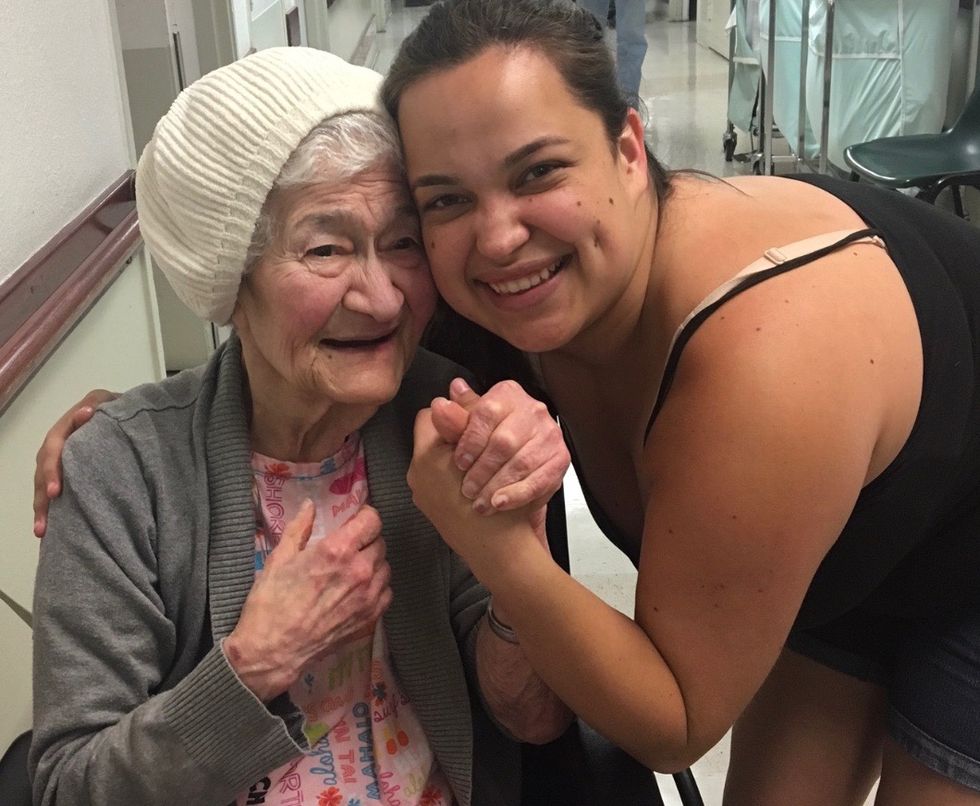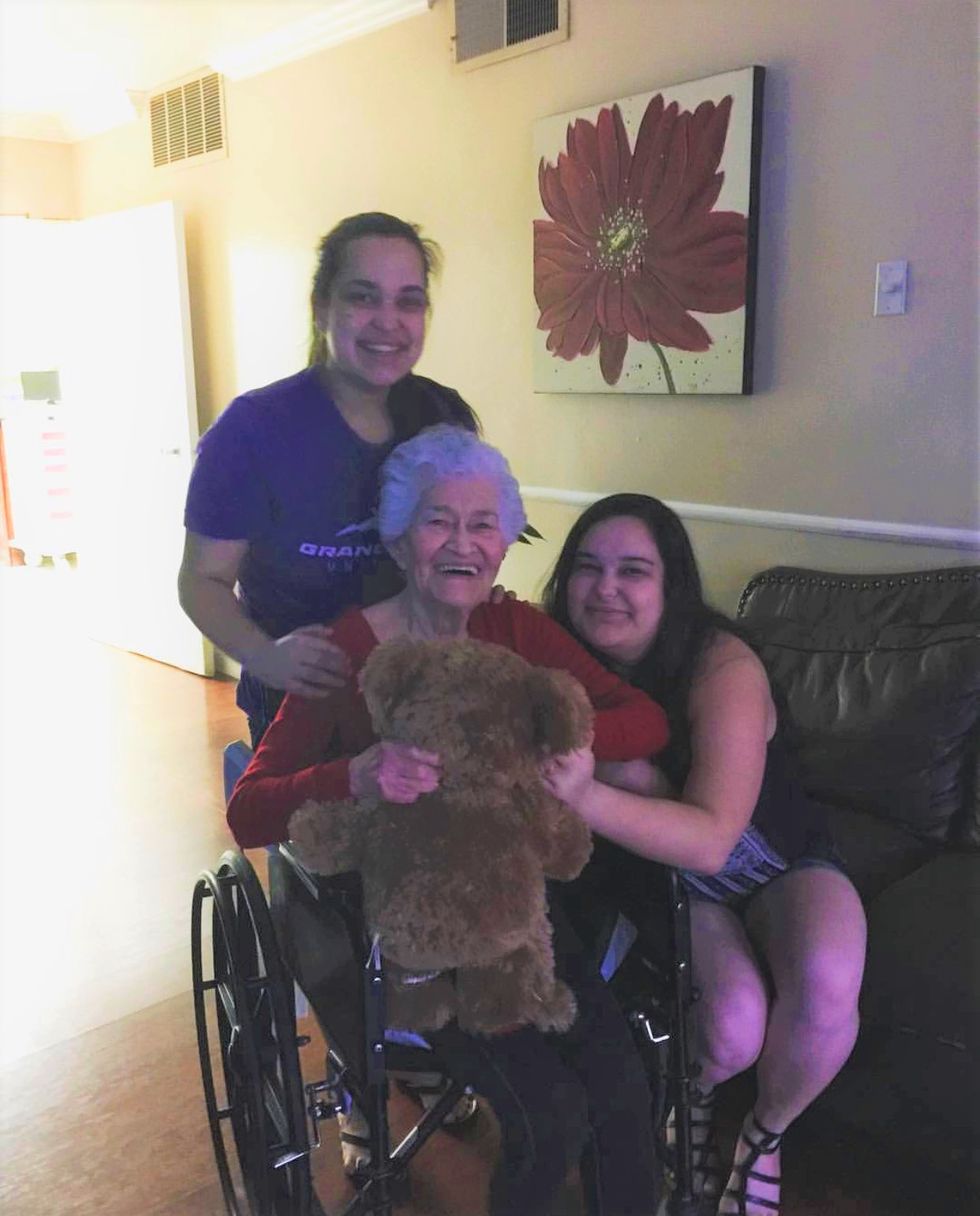On January 1st, 2015, I wrote a journal entry that said this:
Last night, she asked me who's birthday it was every five minutes. After a while, I was so angry at her that I would have snapped if we weren't at dinner with the family.
"Abuelita," I tried to say calmly, "I just told you. It's Sean's birthday."
Five minutes later she asked me again with a smile like she hadn't just asked me and I hadn't just told her.
That's when the reality of her illness hit me. It really hurts because she is trying so hard, but she's so disconnected from our world, she can't help it. I'm stressed now because pretty soon she won't remember anything and that scares me. What'll happen on the day she doesn't remember me?
A year later, my Abuelita (grandmother) would be put in a home while I was away for school. This is where her memory would deteriorate so quickly that when I saw her again, there would be no glimpse of recognition in her face.
She didn't know who I was though she watched me and my siblings grow up from her guest room in our house. Though she spent countless afternoons picking us up from school or many Saturday mornings teaching us her favorite memory verse or worship songs, she had no idea what her family looked like.
Dementia is a broad term for diseases and symptoms that cause the gradual decline of one's ability to think, remember, and function normally. It becomes near impossible for them to communicate comprehensively. They will lose the ability to perform simple tasks such as walking, eating, etc.
It doesn't sound easy to live with because it isn't. In fact, it's one of the most difficult things anyone can go through. Because not only are the diseases slow growing, but it can be long-term once it gets to be untreatable.
My Abuelita is in a home in which her first roommate lived to be 105 years old. She lived in that home for ten years before she passed away with dementia. Imagine how hard it is for both patient and the family, watching this go on for ten years.
I'll go visit her and wonder how long she'll have to live like this. Then, I imeddiately feel guilty for even thinking it. It's just hard being forgotten by someone who knew you so well. When you put yourself in their shoes, you start to think about how it must have been like for them in the early stages of it, How frustrated they must have been!
You see, all this time, she had been trying to force herself into our world. She'd work twice as hard to come up with the nouns that came so easily to everyone else. She would try to make connections in the conversation that didn't use to be so hard.
Now, we have to try and force ourselves into her world to try and understand her. We have to make the fight to try and understand what she wants or what she's thinking. Is she trying to tell us she's in pain? Is she looking at me now because she's recognizing me? What is she trying to say?
It's difficult when you trade places and come to the realization that you would have done so much more even in the early stages of the diagnosis.
For me, I waited until the diagnosis became real to me before I started paying attention. I should have done more.
I should have tried to understand dementia and how it affects her daily life.
I should have spent more time with her when she wanted to spend more time.
I should have done more. Plain and simple.
But the guilt I'm feeling is something that many people experience when losing someone they love. They're filled with regrets about what they didn't do even though they could have. It's time to start thinking about what is still left to do.
I can go visit her now. Even though it's painful, I can be with her, sit with her, talk with her for as long as she lets me. Most of the time, it's only five minutes, but those five minutes are more of what I could have given her then and what I will give her now.
Because I can.
And if you are a loved one with someone with dementia, you can too.


















